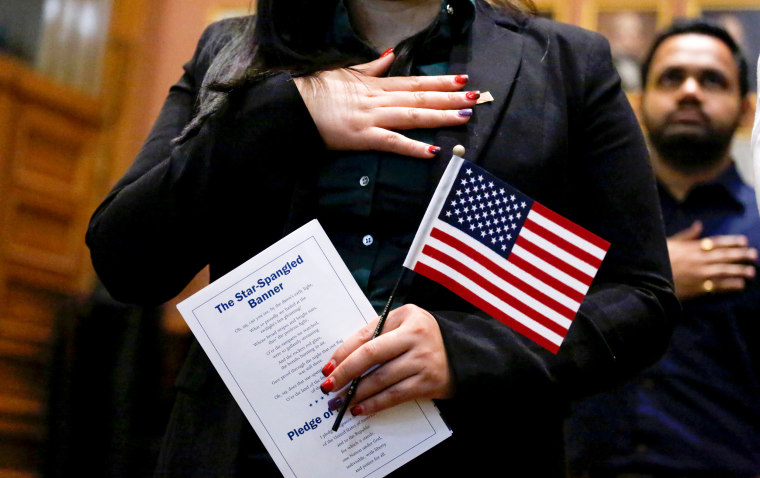President Donald Trump is expected to announce Thursday that he's taking executive action on adding a citizenship question to the 2020 census — a move that comes two weeks after the Supreme Court rebuffed the administration's justification for including the question.
Here are some answers to key questions about the census issue ahead of Trump's announcement.
1. Would an order violate the Supreme Court?
Not necessarily. The Supreme Court's June 27 ruling is quite narrow. It said the Commerce Department failed to offer an adequate reason for wanting to put the question on the short form that goes to all U.S. households.
"Reasoned decisionmaking under the Administrative Procedure Act calls for an explanation for agency action," the court said. "What was provided here was more of a distraction."
The court's ruling meant that, at that point, any attempt by department to come up with some new explanation ("What we really meant ...") would have been a lost cause.
The ruling also said, however, that there's nothing unconstitutional about inquiring about citizenship in the census. It's been asked in every census up through 1950. From 1960 on, the citizenship question was not on the form that went to all households, but it was included on a longer form that went to a small sample of households.
2. Will it be subject to a court challenge?
That seems certain. Even if the president orders the Census Bureau to include the question as some kind of add-on —perhaps even a separate piece of paper mailed with the census short form — opponents of the idea say it will have the same effect of reducing the response rate from immigrants, both those who are here legally and illegally. And that, in turn, will make the census less accurate, they say.
A federal judge in New York is already scheduled to hear arguments on July 23 about a request by opponents of the question to permanently bar the government from including it. If the judge grants that motion, his order would presumably apply to the president's executive action.
It's also likely opponents would challenge the president's action itself by arguing that it violates the federal law that says Congress, not the White House, is ultimately in charge of the census.
3. Is timing an issue?
Yes. Federal law requires the Census Bureau to go through a number of steps before making changes to the census form, and opponents will argue that any action now would short-circuit those requirements.
Another problem is of the government's own making. The Justice Department has repeatedly insisted in court, including the Supreme Court, that prompt action was essential in order to start printing the census forms by the end of June. Now the government will have to say there's actually some wiggle room, and that won't go over well with judges.
4. Is citizenship data required for redistricting?
Every process of determining how many seats a state gets in the U.S. House has always been based on total population, not on the number of citizens. The Constitution says the census counts "persons," not "citizens," and records of debates on the issue show that proposals to count only citizens were considered and rejected.
A group of House Republicans said Wednesday in a letter to the Justice Department that the Constitution "demands that we take into account citizenship in allocation of representation," but that's not accurate.

